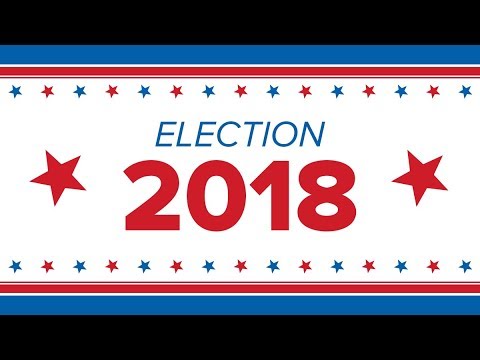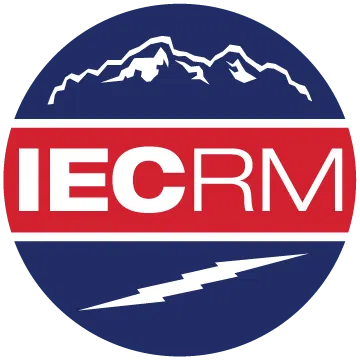Annual Policy Forum – Recap Mid-Term Elections 2018

Preparation, solid facts, airtight business case and new relationships vital to navigating significant challenges coming our way in 2019
On November 15, the IECRM Government Relations committee hosted the Annual IECRM Policy Forum, part of National Apprenticeship Week this year. Mid-term election results were presented and discussed including results of the Colorado Governor’s race, and both the state senate and congressional contests.
Nationally, Republicans expanded their control of the Senate and the Democrats took power in the House. Here at home, in the Colorado governor’s race, Jared Polis, a Democratic congressman from Boulder, defeated state treasurer Walker Stapleton. With Governor Polis taking over, we could see new appointees within all executive agencies as well as staff.
In the Colorado State House, the Democrats who already had a firm hold on the majority, were able to pick up five more seats giving them a 41-24 advantage. Two surprise losses were Assistant Minority Leader Rep. Cole Wist of Arapahoe County and Steve Szutehback of Jefferson County.
In the State Senate, Republicans held the majority, 18-16-1, before the election. But Democrats were ale to pick up three seats, flipping the majority by a 19-16 advantage. Three races determined the make-up of the new Senate:
- SD16: Sen. Tim Neville lost to Tammy Story
- SD20: Sen. Jessie Danielson beat Christine Jensen
- SD24: Rep. Faith Winter defeated incumbent Sen. Beth Martinez-Humenik.
At the end of the election and the tallying of all results in Colorado, 80% of the candidates IECRM supported were successful.
Special guest Jason Todd, IEC National’s vice president of Government Affairs in Washington D.C., discussed the implications of the mid-terms nationally and their potential impact on federal and state efforts that support apprenticeships and the skilled trades.
“As House Committee leadership shifts to the Democrats, the semantics and focus will most likely change from ‘workforce’ and ‘education’ to ‘labor’,” said Jason. ”This likely will result in a shift from some of President Trump’s Workforce Development initiatives to union and labor issues.” Jason noted that the House Workforce Committee will not likely be renamed the Labor Committee.
“We can count on some very challenging issues and concerns coming our way,” Jason said. “This will mandate that we do everything we can to build positive relationships with both sides of the aisle going forward.”
Working with lawmakers to educate them on them on the shortage in the skilled trades and strengthen what we can do to close that skills gap will need to be consistent and persistent. “We also will work even harder with like-minded coalitions, like the Coalition for a Democratic Workplace, to focus on policy and lay the groundwork for the 2020 election,” he noted. IEC is a member of the Coalition for a Democratic Workplace.
The outlook is that in the new House during its first 90 days, we will see:
- The minimum wage debate resurfaces
- Greater attention to putting paid leave in place
- Heating up of more action on healthcare reversing GOP legislation the past two years.
- Doubling of the overtime threshold
- More funding for OSHA “enforcement” versus “compliance assistance”
- Use of infrastructure dollars for immigration
Back here in Colorado, the 2019 legislative session will bring dramatic change. “We must be prepared with the facts and the statistics to make the business case for what the electrical contracting industry needs to continue to thrive and to address workforce development more aggressively.
”We supported candidates in the mid-terms who we felt we could really work with if they successfully won their bids for office,” said Marilyn Stansbury. “We must be part of the overall conversation with our new leaders at all levels – executive and legislative – and help them learn about what we are doing to train next generation electricians.”
IECRM and the Government Relations Committee must broadly and frequently communicate about the opportunities that exist for young people and people changing careers. The outreach and progress that has been made must continue and new relationships built with leaders and influencers at both national, state and local levels to amplify that there is an alternative to a traditional college education that results in a fulfilling occupation and provides a living wage.
“The public opinion pendulum is swinging back to an understanding of the importance of skilled trades from both a craftsmanship and safety point of view,” said Marilyn. “It’s also great to see the skilled trades once again be perceived as a respected occupation and career.”
The future will require more power not less. As long as there are smart roads, buildings, homes, schools, and everything else,” said Marilyn, “we will depend on electricity to provide the power and electricians to build nervous system into every structure, road and system to ensure they work.”
There were many contentious ballot measures this year in Colorado. Ten amendments were proposed. Click here to find the results.
Along with the Executive changes, there will be many others coming in both he Senate and the House. IECRM’s Government Relations Committee and Jason Todd at IEC are keeping a close eye on the series of changes that will happen from now until the start of the next legislative session. Updates will be forthcoming as they happen.
INSERT SIDEBAR WITHIN STORY
